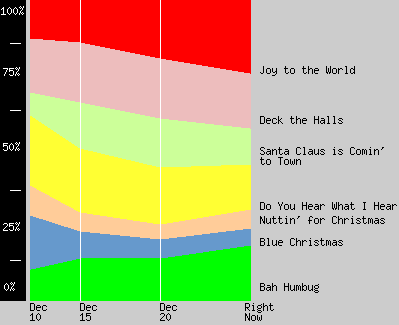Christmas Time for Pagans: The Yule Legend.
Y
ule is like "quantum" or "moot" or "conservative": a term we toss around casually with no real understanding of its meaning or origins. That stops now.
Yule was not originally just a synonym for Christmas. It was its own season with its own time-honored traditions, and those, in turn, with their own context and meanings. Some were quite complex, even rigorous. And not all have survived into the modern era. Like the Yule Goat or the Yule Boar. (From the sound of them, just as good, no?)
Even a simple affair like the Yule Log, which was at base just a large stick for a fire, had a fair bit of ritual to it. One thing about the Middle Ages is that life may have been nasty, brutish and short, but folks still found themselves with time on their hands especially in winter.

Yule or Yuletide was a religious festival observed by Germanic peoples and many of their neighbors. Basically, the word Yule meant "feast." It entailed banquets, rowdy behavior, group singing and drinking games, which eventually formed the foundation for the English custom of Wassailing. (And probably date rape.)
The earliest references to Yule are by way of indigenous Germanic month names like Ærra Jéola (before Yule) or Jiuliand Æftera Jéola (After Yule). Understandably, Yule was something people looked forward to all year long.
Terms with an etymological equivalent to Yule are encountered throughout the Nordic countries, and, of course, Yule came over time to be used in English-speaking countries to refer to the Christmas season itself. Oh, and the French turned it into a holiday cake. Of course.
The early Church was the homo sapiens of religious cultures. It absorbed, corrupted and eventually eviscerated whatever unsuspecting religious customs it stumbled upon as it sped across Europe. In the fourth century AD when Pope Julius I decided to celebrate Christmas around the winter solstice, Yule was doomed. The Yule log tradition continued, for example, but the fire came to represent the light of the Savior instead of the light of the Sun.
Yule was originally a celebration of the winter solstice. In Scandinavia, Yule ran from several weeks before the winter solstice to a couple weeks after. It marked the sun's rebirth (its return from the southern reaches). The Yule log gets its name from the Scandinavian tradition, but the ritual burning of a special log during winter solstice took place as far west as Ireland, as far south as Greece and as far north as Siberia.
Almost everywhere, the fire was started with a piece of the last year's log, to symbolize continuity and the eternal light of heaven.
On or about Christmas eve, a big-assed log was carried home, songs were sung, stories were told, children danced, adults played Twister. Offerings of food and wine and decorations were placed upon the log. In short, Party Time, at least after a certain amount of pre-party planning.
In Bulgaria, for instance, you just about had to fight for your right to party. A young man of the family would be sent dressed in his best clothes to cut down an oak, elm or pear tree. A prayer for forgiveness was necessary before it could be chopped down.
He then had to carry home as large a piece of it as he could on his right shoulder, and it could not be allowed to touch the ground. Before the log was burned, a hole would be bored in one end and filled with a Chrism of wine, oil and incense. The hole was plugged, and that end of the log was wrapped in white linen.







